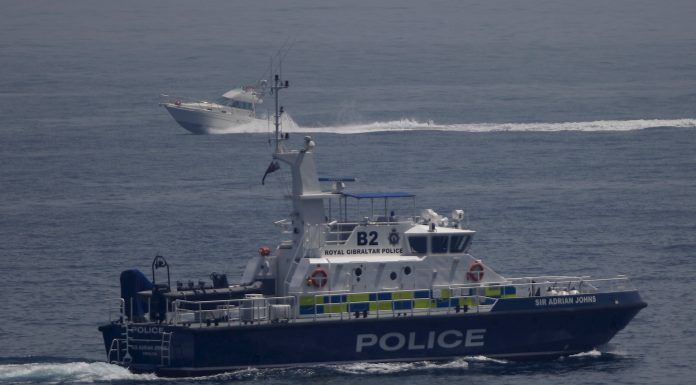The U.S. is trying to put together a military coalition with its allies in the coming weeks to patrol strategic waters off Iran and Yemen.
“Under the plan, which has only been finalized in recent days, the United States would provide command ships and lead surveillance efforts for the military coalition. Allies would patrol waters near those of U.S. command ships, and escort commercial vessels with their nation’s flags,” the Reuters news agency reported earlier this month, citing Marine General Joseph Dunford, the chairman of the Joint Chiefs of Staff.
“We are engaging now with several countries to see if we can put together a coalition that would ensure freedom of navigation both in the Straits of Hormoz and the Bab al-Mandab,” Dunford said. “So I think that probably over the next couple of weeks, we will identify which nations have the political will to support that initiative and then we will work directly with the militaries to identify the specific capabilities that’ll support that.”
Meanwhile, in a televised cabinet meeting on July 10, Iranian President Hassan Rouhani lambasted the U.K. for the seizure of an Iranian supertanker, Grace 1, off the coast of Gibraltar by the British Royal Marines six days earlier on suspicion of carrying crude oil destined for Syria in breach of E.U. sanctions.
“What Britain did was vile, wrong and a mistake,” Mr. Rouhani said. “I must tell the British that they were the ones who started the maritime clashes, and they should know that, as a consequence, Britain will be directly responsible for whatever happens after this act of piracy.”
Rouhani added: “It is possible that Britain acted on an order from the U.S. or under the direction of the B Team [a reference to the U.S. Secretary of State Mike Pompeo, U.S. National Security Advisor John Bolton, Israeli Prime Minister Binyamin Netanyahu, and Saudi Crown Prince Mohammad Bin Salmon]. Irrespective of circumstances, this was a bad mistake.”
“We know that the U.K. government is in disarray at the moment and the country is facing political challenges, so seizing the Iranian tanker during these uncertain times was stupid,” Rouhani noted.
Rouhani also called for greater cooperation among nations for safeguarding international waters. However, many tankers that move in and out of the Strait of Hormuz do not find Rouhani’s call for safety and security very reassuring.
“An oil tanker run by BP Plc is being kept inside the Persian Gulf in the fear that Iran could seize it in a tit-for-tat response to the arrest by Gibraltar last week of a vessel hauling the Islamic Republic’s crude,” the Bloomberg News agency reported on July 8. “The British Heritage, able to haul about 1 million barrels of oil, was sailing toward Iraq’s Basra terminal in the country’s south when it made an abrupt U-turn on July 6. It is now off Saudi Arabia’s coast, and a person with knowledge of the matter says BP’s concern is that it could become a target if Iran seeks to retaliate for the seizure near Gibraltar by British Royal Marines.”
The Islamic Revolutionary Guards Corps (IRGC) began intercepting oil tankers moving through the Strait of Hormoz after the U.S. ended sanctions waivers in May of this year for the eight countries which had continued importing Iranian crude oil, namely China, India, Russia, Italy, Turkey, Greece, South Korea, and Japan.
The IRGC allegedly carried out the attacks on seven oil tankers in the Strait of Hormoz in recent months including the Norwegian-owned Front Altair, Japanese-owned Kokuka Courageous and two ships owned by the United Arab Emirates (UAE).
Some news agencies have reported on the seizure of another Iranian tanker in the Suez Canal.
“Egyptian authorities detained a Ukrainian tanker carrying Iranian oil as it passed through the Suez Canal ten days ago,” the Middle East Monitor reported on July 9, citing Al-Araby Al-Jadeed. “News of the seizure came a day after Egypt’s Supreme State Security Criminal Court sentenced six people to jail on charges of spying for Iran.”
The state-affiliated Tasnim news agency at first confirmed the report on July 9, but took the post down from its website a few hours later and printed an update which read: “Some domestic media outlets have mistakenly reported the seizure of a Ukrainian tanker carrying Iranian oil as a piece of breaking news, which in fact happened ten days ago.”
Some reports suggest that the tanker, Sea Shark, had left Iranian waters on September 23, heading for the Suez Canal, carrying one million barrels of crude oil.
[Translated from Persian by Fardine Hamidi]



